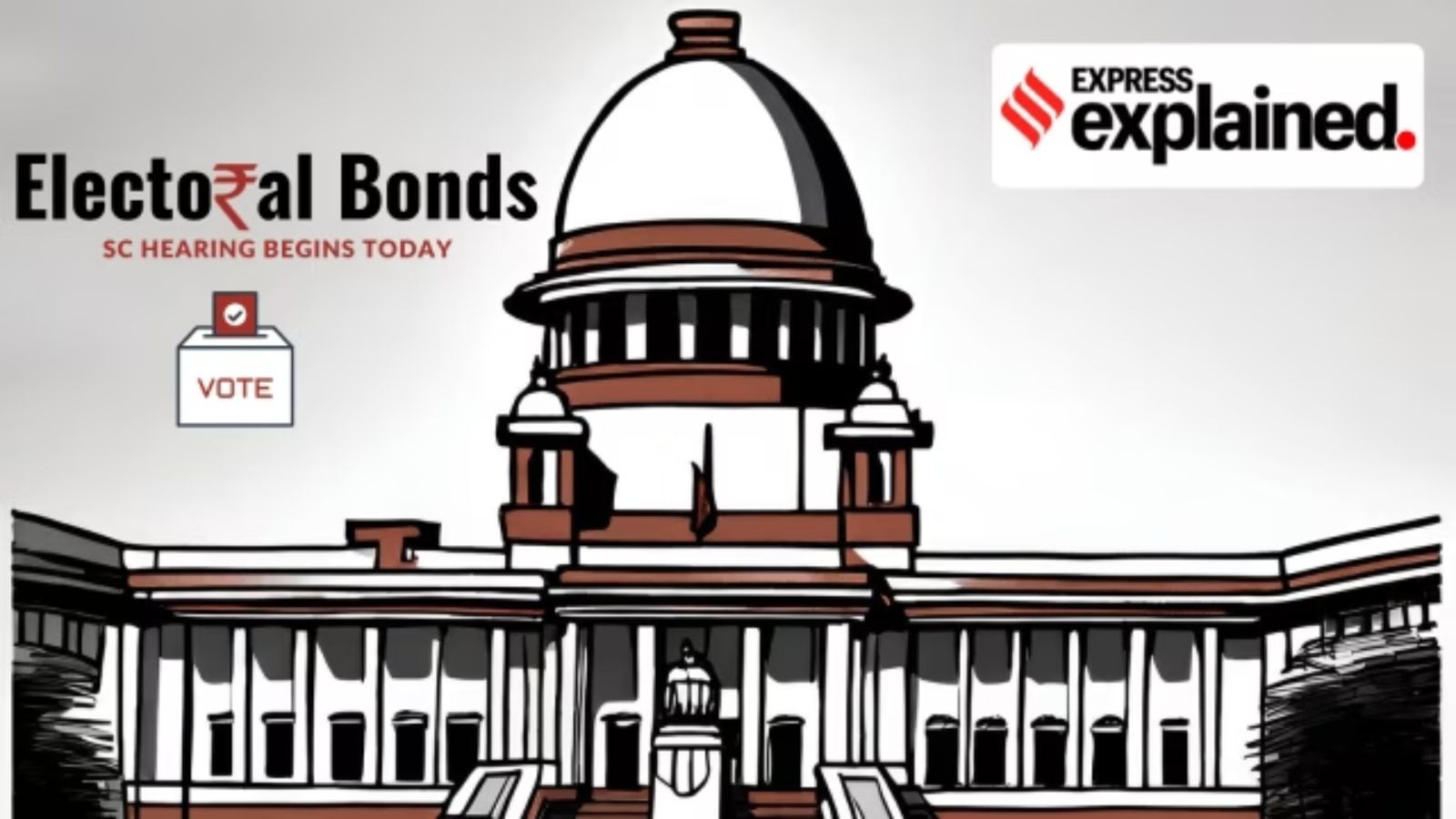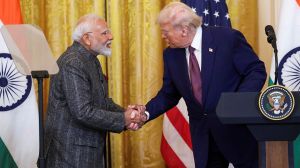Electoral Bonds case verdict: What parties argued before Supreme Court
While the petitioners expressed concerns regarding the anonymity of electoral bonds donations, the government defended the donations’ confidential nature citing the right to privacy. The Supreme Court will give its final verdict on February 15.
 The Supreme Court delivered its final veridct on electoral bonds petitions on February 15. (Express Graphic)
The Supreme Court delivered its final veridct on electoral bonds petitions on February 15. (Express Graphic)The Supreme Court Thursday (February 15) will decide if the central government’s electoral bonds scheme should be struck down.
The scheme
The electoral bonds scheme allows corporations and individuals to anonymously donate money to political parties by purchasing electoral bonds from the State Bank of India (SBI). Notably, the SBI has sole access to the details of those who purchased electoral bonds. According to the scheme, the proceeds from any bonds, which are not encashed within 15 days of being issued, are to be deposited in the Prime Minister Relief Fund.
This scheme was challenged shortly after it was announced in January 2018, by a number of parties, including the Communist Party of India (Marxist), Common Cause and the Association for Democratic Reforms (ADR). The case was heard by a 5-judge constitution bench of the Supreme Court led by Chief Justice of India for three days from October 31 to November 2 last year.
Here are some key arguments made before the apex court.
The petitioners’ concerns
Advocate Prashant Bhushan, representing Common Cause and ADR, argued that citizens have a right to information about the parties and candidates seeking their votes. Though financial statements of companies are available on the Ministry of Corporate Affairs websites, which could theoretically allow someone to glean the source of donations, Bhushan pointed out that there are roughly 23 lakh registered companies in India. Figuring out how much each company had donated using this method would not be possible for an ordinary citizen, Bhushan argued.
Bhushan also argued that the scheme would distinctly favor the ruling government of the time, as the guarantee of anonymity would allow the government to provide concessions in the form of licenses, leases, policy changes and government contracts.
Senior Advocate Kapil Sibal highlighted further perceived gaps in the scheme. He stated that there is nothing in the scheme that requires the donation to be connected to the election process, and that SBI’s own FAQ section states that the bond amount can be redeemed at any point in time, and for any other purpose.
Sibal also drew the court’s attention to how the scheme could result in companies failing its duties towards its shareholders. By allowing companies to “funnel money” to political parties without any oversight from shareholders, it denies the owners of said company the ability to decide how their company should act in the political sphere.
The central government’s justification
Solicitor General Tushar Mehta argued that the focus of the scheme is not to ensure “anonymity”, but to ensure “confidentiality”. Referring to the apex court’s decision in 2019 to recognise the right to privacy as a fundamental right, he argued that donors have a right to privacy unless the information is a source of genuine public interest, in which case people can approach the court.
The Solicitor General also gave the court a detailed explanation of the ways in which Parliament, the government and the Election Commission had attempted to halt the circulation of black money in politics over the years. The electoral bonds scheme, he claimed, was introduced after “experimenting” with a wide variety of schemes, amendments and policies. He also argued that if there were any gaps in the scheme, that alone would not be sufficient reason to strike it down.
He also stated that the petitioners’ concerns of bias had nothing to do with the constitutionality of the scheme itself. If any bias towards the ruling party does exist, Mehta claimed that it was not connected to the scheme and can be attributed to the ruling party holding the confidence of the people.
- 01
- 02
- 03
- 04
- 05






































